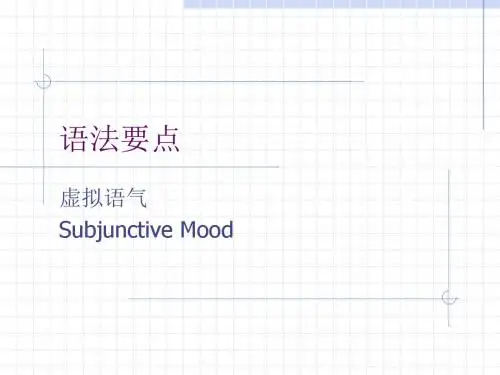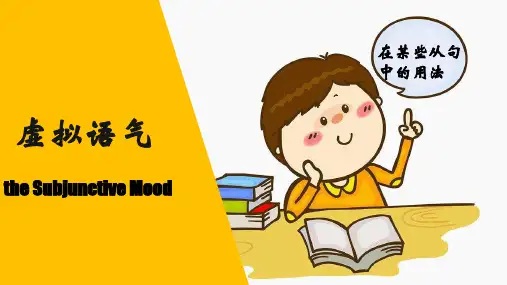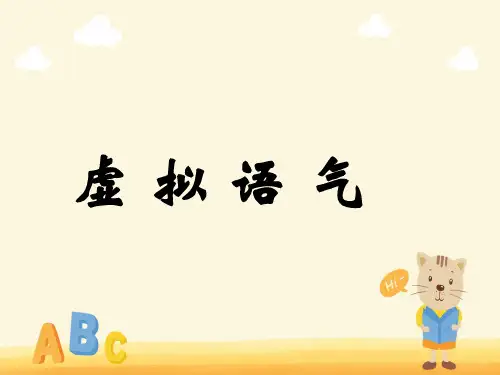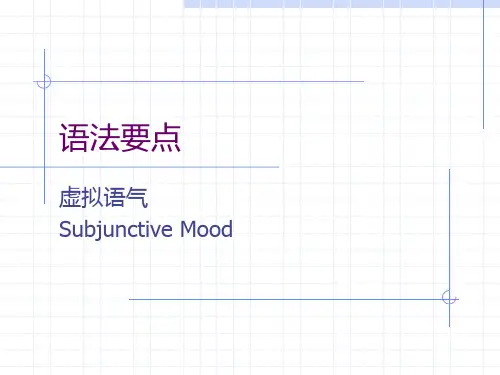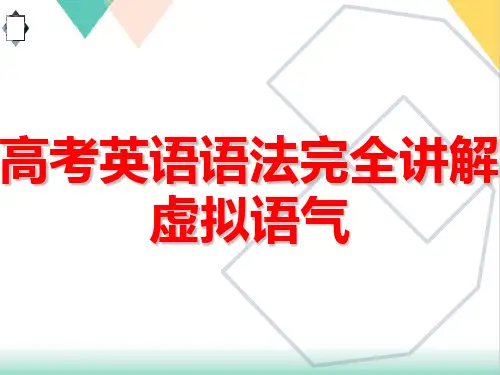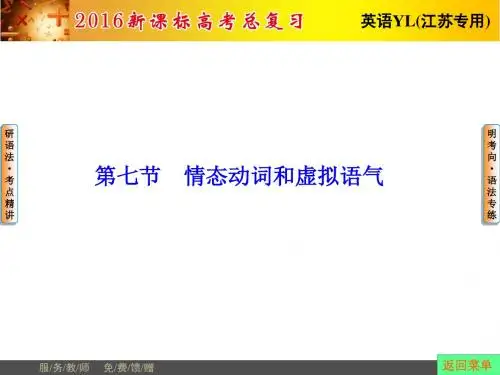The car breaks down otherwise we would arrive earlier.
常 见 的 动 词 有 : s u g g e s t , a d v i s e , p r o p o s e , 1、wish后的宾语从句一般用虚拟语气,表示一种不可能实现的愿望。
(If the car didn't break down, we would arrive earlier. (3)would/could/might+动词原形(动作后于wish发生)。
If you had followed my advice just now, you would be better now. 使用虚拟条件句时要特别注意以下几点
1、wish后的宾语从句一般用虚拟语气,表示一种不可能实现的愿望。 They spoke English fluently as if they had learned English for many years.
原形的形式,should通常省略。 If it should rain tomorrow, we would not go climbing.
It is time that the children should have lunch.
虚拟语气在状语从句中的运用
1、在as if/though“好像、似乎”引导的方式状语从句中,如果表达虚假的 事实,需要用虚拟语气,从句用一般过去时表示与现在事实的相反;用过去完 成时表示与过去事实的相反;用过去将来时表示与将来事实的相反。
If only I had seen the film!=How I wish I had seen the film!
2、用于表示建议、愿望、命令等动词后的宾语从句 中,常见的动词有:suggest, advise, propose, recommend, insist, order, demand, require, request, desire, urge等,谓语动词用should +动词 原形的形式,should通常省略。
